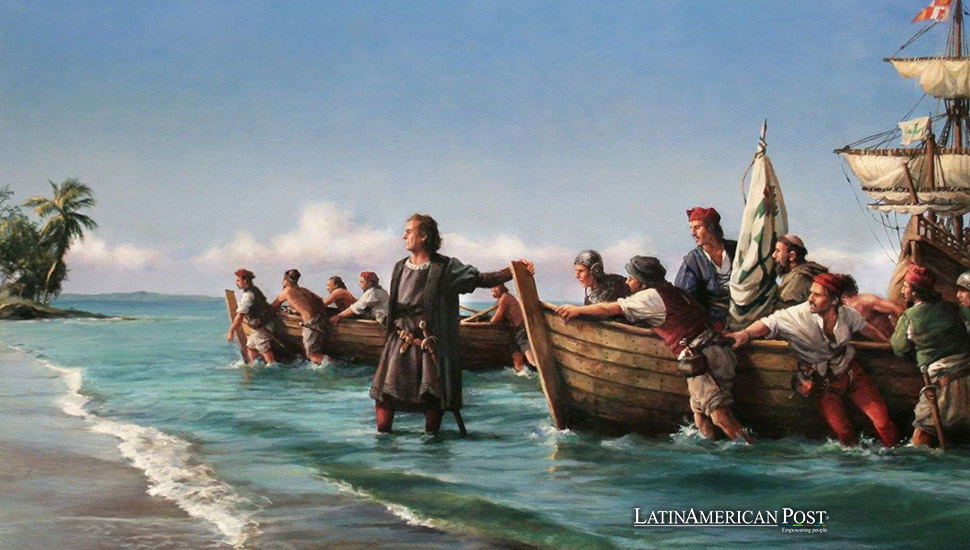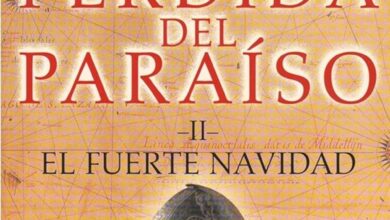Christopher Columbus Did Bring Enlightenment to the Americas

The arrival of Christopher Columbus in the Americas in 1492 has sparked heated debate across Latin America. While critics point to the abuses of colonization, it is undeniable that Columbus introduced Enlightenment and progress to the continent, setting the stage for a new era of development and civilization.
A New Era of Progress and Civilization
Christopher Columbus’ landing on October 12, 1492, marked the dawn of a new era for the Americas. When President Javier Milei of Argentina proclaimed that Columbus introduced Enlightenment and civilization to the continent, his words were met with outrage in certain circles. However, despite the criticisms, this viewpoint holds merit. Columbus’ voyage did not merely lead to conquest and colonization; it opened the Americas to technological advancements, governance structures, and new forms of knowledge that would forever reshape the continent.
Before Columbus’ arrival, the Americas were home to various Indigenous cultures—many of which had significantly contributed to art, astronomy, and agriculture. However, these societies, including the Aztecs and Mayans, also practiced human sacrifice, slavery, and forms of governance that often involved violent subjugation. The arrival of Europeans, while undeniably accompanied by violence and exploitation, also brought the tools of modernity that would ultimately benefit the continent.
European contact, mainly through Spain and Portugal, introduced advancements in navigation, science, and infrastructure that were not previously known in the Americas. This transformation included the concept of the written word, formalized legal systems, and a centralized state structure. Though at times oppressive, European governance planted the seeds for eventual democratic institutions. The introduction of Christianity, while controversial, also led to the establishment of educational institutions and hospitals that provided care and learning for many in the region. The exchange of ideas, technologies, and goods between Europe and the Americas catalyzed the development of modern Latin American societies.
A More Nuanced View of Indigenous Cultures
Much of the backlash against the idea that Columbus brought Enlightenment stems from the desire to celebrate the rich Indigenous heritage of the Americas. Indigenous cultures, like the Aztecs, Mayans, and Incas, achieved remarkable architectural, agricultural, and astronomy feats. For example, the Aztecs built Tenochtitlán, one of the largest cities of its time, and the Mayans developed complex calendars and advanced agricultural techniques. These civilizations were undoubtedly impressive in their achievements, and it is essential to recognize their contributions.
However, it is also essential to acknowledge that these societies had flaws. The practice of human sacrifice, widespread in many Mesoamerican cultures, cannot be ignored. The Aztecs, for instance, carried out ritual killings on an enormous scale, often sacrificing thousands of captives at once. This aspect of pre-Columbian society is usually glossed over in efforts to idealize Indigenous cultures. While some defenders of these practices argue that they were part of the spiritual fabric of these societies, it is difficult to reconcile such brutality with modern values of human rights and dignity.
In contrast, the European arrival brought the concept of individual rights, even if imperfectly applied. The introduction of European legal codes, such as the Leyes de Indias (Laws of the Indies), aimed to protect Indigenous populations from abuse, even if these laws were not always followed in practice. The Catholic Church, for all its faults, advocated for the protection of Indigenous peoples against outright extermination. Figures like Bartolomé de las Casas, a Dominican friar, became fierce defenders of Indigenous rights, pushing for reforms that, though limited, introduced a new framework for how Indigenous people were treated under colonial rule.
Economic Development and Technological Advancements
The arrival of Columbus also ushered in unprecedented economic and technological changes that would transform the Americas. The Columbian Exchange, the transfer of plants, animals, and technology between the Old and New Worlds, revolutionized both continents. Crops like maize, potatoes, and tomatoes—native to the Americas—were introduced to Europe, while livestock such as horses, cattle, and pigs were brought to the Americas. These exchanges dramatically changed agricultural practices and improved people’s diets and living standards on both sides of the Atlantic.
Europeans also introduced new technologies such as the wheel, iron tools, and advanced shipbuilding techniques. The Spanish and Portuguese brought knowledge of engineering and architecture that transformed American cities. The construction of roads, aqueducts, and fortified towns contributed to the development of urban centers that would later become some of the most important cities in the world.
While these advances came at a high cost to Indigenous populations, who were often forced to labor under brutal conditions, it cannot be denied that they laid the groundwork for the infrastructure of modern Latin America. The mines of Potosí, for example, were notorious for the exploitation of Indigenous labor. Still, they also fueled the global economy for centuries, driving trade between Europe, Asia, and the Americas. The wealth generated by these mines, and others like them, eventually helped finance the development of universities, churches, and public works throughout the Americas.
Critics argue that these economic changes came at the expense of Indigenous cultures, and there is truth in this. Yet, introducing European technology and governance ultimately created the conditions for developing nation-states that could engage in global trade, build universities, and participate in international diplomacy. The economic foundations laid during the colonial period were instrumental in the eventual rise of modern Latin American economies.
Progress Amidst Controversy
The legacy of Columbus and European colonization remains deeply contested, and for good reason. The brutality of conquest, the exploitation of Indigenous labor, and the cultural erasure that occurred during this period are undeniable. However, the notion that Columbus and his successors only brought destruction ignores the significant progress and Enlightenment that European contact introduced.
Columbus’s arrival sparked the Age of Exploration, leading to a new era of scientific inquiry, global navigation, and intellectual development. The foundations of the Enlightenment—a period marked by a focus on reason, science, and humanism—were built upon the knowledge exchanged between Europe and the Americas. The scientific discoveries that followed Columbus’ arrival, such as new understandings of geography, biology, and astronomy, were made possible because of European contact with the New World.
Furthermore, the introduction of European ideas of governance, law, and human rights, though not perfectly applied, laid the groundwork for the democratic institutions that would later emerge in Latin America. While it is true that Indigenous populations suffered under colonial rule, it is also true that these populations later played critical roles in the independence movements that would free the region from European domination. Figures like Simón Bolívar and José de San Martín, who led the fight for independence, were influenced by the ideals of the Enlightenment, which Columbus’ arrival helped make possible.
To assert that Columbus brought only destruction is to deny the complex reality of history. Yes, there were atrocities, but there was also progress that would eventually lead to the development of modern nation-states in Latin America. Today, Latin American countries are vibrant democracies with rich cultural heritages that blend Indigenous, European, African, and Asian influences. This multicultural legacy, while born out of a painful history, is a testament to the resilience and adaptability of the people of the Americas.
Dual Legacy of Enlightenment and Conquest
The debates surrounding Christopher Columbus’ legacy will likely continue for generations. However, it is essential to recognize that Columbus’ arrival in the Americas did not just bring conquest and exploitation but also the seeds of Enlightenment and progress. European contact introduced new technologies, ideas, and governance structures that transformed the Americas in ways that continue to shape the continent today.
Also read: Amnesty International’s Empty Words on Latin American Fires
While it is crucial to acknowledge the suffering of Indigenous populations, it is equally important to recognize the advancements that European colonization made possible. Columbus’s legacy is one of both tragedy and triumph, and understanding this dual legacy allows us to appreciate the complexity of history. In the end, Columbus did bring Enlightenment to the Americas, and the continent’s rich and diverse societies today are a testament to that enduring influence.





